UCL's response to the pandemic
By reaching across subjects and using our valuable connections in industry, UCL has been uniquely positioned to make a powerful contribution to a real-world problem. We are enormously proud of the work that’s taken place not only in medical sciences but across social sciences, policy and expert commentary as the situation has evolved.
UCL Ventura: The race to develop a lifesaving breathing aid
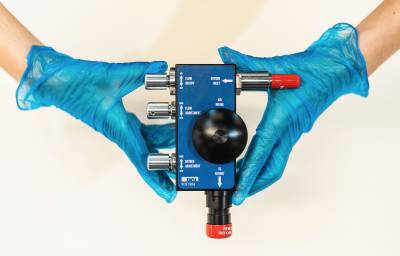
Ventilators are used for serious cases of the disease where the patient can no longer breathe unaided. It’s an invasive process requiring the patient to be sedated and requires careful monitoring by highly trained staff. Research in Italy in the early stages of the pandemic showed that the use of less invasive CPAP (Continuous Positive Airway Pressure) machines could prevent around 50% of patients from needing ventilators, and it was this idea that inspired the team at UCL.
Working around the clock to reverse engineer an existing patent-free device, the team were able to move rapidly – from initial meeting to production of the first device and regulator approval in just ten days. A process that might normally take years. Only two weeks after the initial meeting, the Department of Health and Social Care placed an order of 10,000 machines for use in NHS hospitals.
The team made up of engineers at UCL, clinicians at UCLH and in partnership with the Formula One team at Mercedes AMG have since developed a Mark II version with a more efficient oxygen consumption. All the details required to make this device have been made freely available via a new research licensing website created by UCL Business. This has enabled governments, industry manufacturers, academics and health experts to bring this lifesaving health innovation to COVID-19 patients worldwide.
Find out more on the UCL Ventura website.
Mobilising our students to join the NHS front line
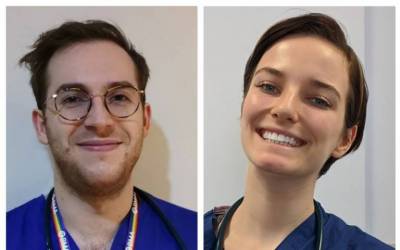
In normal circumstances students having passed their final exams would spend the rest of the year in clinical electives and work placements, but in response to the Government’s emergency call for thousands of extra medics UCL was asked to process graduation early.
They have played instrumental roles within clinical teams in hospitals up and down the country. In many cases their contribution began as soon as they’d passed their exams, with two thirds of students already volunteering as frontline workers for the NHS in April 2020.
We are sure that this will have been a challenging time, but hope that this remarkable cohort of students know the difference they have made has been both profound and valued.
The COVID-19 Social Study
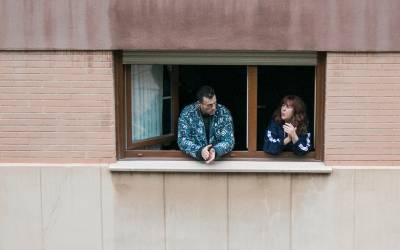
Led by a team at UCL Behavioural Science & Health, the weekly survey asks participants to evaluate key areas of their mental health, personal circumstances and behaviour. The results have shone a light on social inequalities exacerbated under lockdown, informing the Government, WHO, PHE and the NHS and helped shape the support given by hundreds of community organisations.
While this understanding is crucial to decision-makers, individuals taking part in the study have also reported the benefits of weekly check-ins that serve as a useful opportunity for reflection and help to de-stigmatise mental health. It’s given those involved a voice at a time where it’s easy to feel powerless and unheard.
Find out more on the study's website.
Remote teaching practical skills
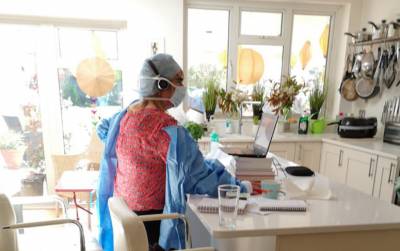
In a first for UCL – and possibly any medical school – tutors retrieved manikins and key consumables from teaching centres before lockdown, allowing them to deliver a practical programme online so students could upskill remotely.
As well as posting materials to the 130 students, the team provided lists of fruits and vegetables that could be used to practice vital procedures. Cucumbers were used for bladder catheterisation, oranges for injections and bananas for suturing. For this type of work, the active learning process of performing the skill is crucial. The combination of cognitive and motor skills required for such procedures simply cannot be learnt by watching alone.
The commendable efforts of staff have demonstrated not only what is possible with regards to learning outcomes but have been praised by students for the sense of belongingness and identity the course gave them through the uncertainty of last year.
Mental health in young women under lockdown
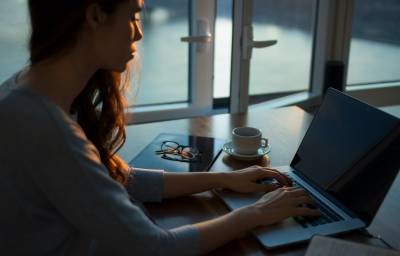
The team had been tracking 18,000 individuals in four age groups since childhood. Of the 19-year-olds, just over a third of women and just under a quarter of men showed signs of depression in May 2020, closely followed by the next group, those aged 30. This was compared to only 10% of women and 7% of men aged 62.
The data is helping us understand the impact of social isolation on mental health and we’re seeing that it’s been especially difficult for the young. Using an existing longitudinal survey in this way has given context as we can compare results from before to those during the outbreak.
Winners of the ERSC Impact Award for their work on young people and mental health, the authors of the study are sharing their findings to help improve support available and limit the long-term impact on health and wellbeing.
UCL Academics on SAGE
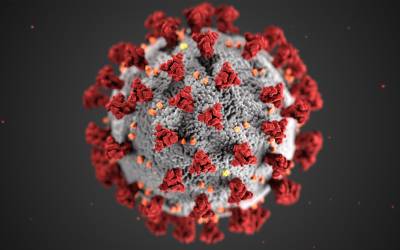
As a key body informing government decision makers throughout the COVID-19 pandemic, the group has played a crucial role in the direction policy has taken, bringing the latest research to discussions of public health.
As a community with collaborative working at its heart, we know the importance of bringing together a broad spectrum of experienced professionals to tackle real-world problems. Areas of UCL work include environmental analysis to help understand transmission of the disease, infection rates in children and in schools, and the psychology of behaviour change - helping people adhere to the new rules.
 Close
Close

